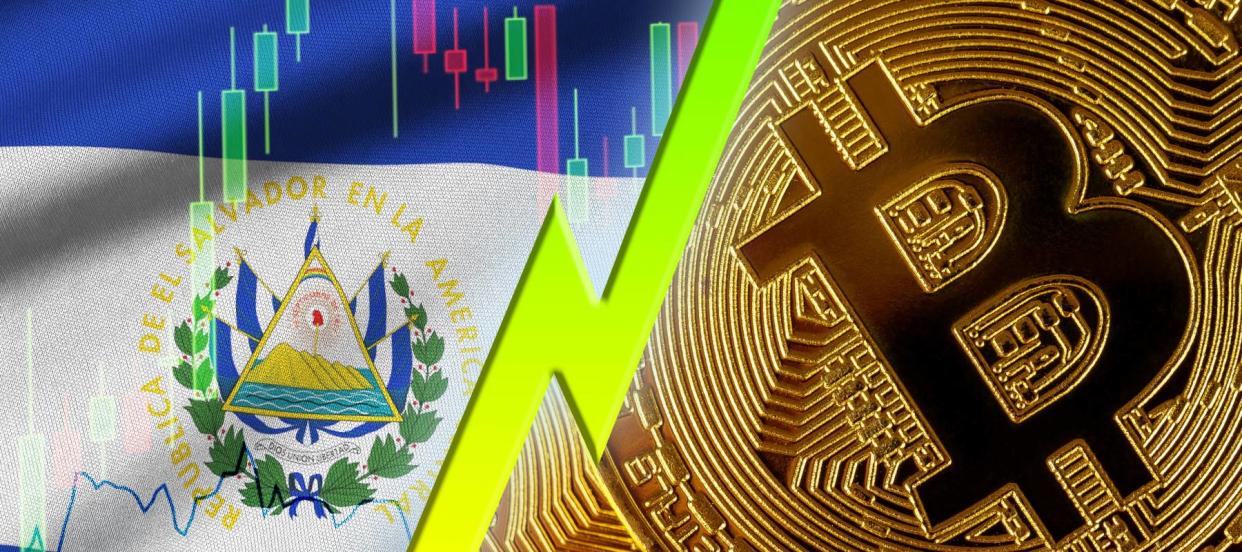One country has embraced Bitcoin as legal tender — could it happen here?

With Salvadorans ready to pay their taxes and buy pupusas with Bitcoin, crypto enthusiasts are already asking: “What country will be next?”
Depending on whom you ask, the first nation to make Bitcoin a sanctioned form of legal tender could pave the way for the world to follow suit — or it could be a short-lived experiment that will only serve to lure a few more tourists to the country’s twinkling, dark-sand beaches.
Whatever the outcome, the move by El Salvador is likely to encourage more American investors to buy into the original cryptocurrency, but it may be some time before they can use it to buy a burger themselves.
Why is El Salvador adopting Bitcoin?

In El Salvador and many other countries, Bitcoin is already a legal method of payment, assuming the recipient accepts it. But in a few months, El Salvador will require all merchants to accept it if they have the technology to do so.
Salvadoran President Nayib Bukele signed the law on June 9 with the stated goal of modernizing the country’s economy. "This will generate jobs and help provide financial inclusion to thousands outside the formal economy,” Bukele said at the 2021 Bitcoin Conference in Miami.
Ben Weiss, CEO of CoinFlip, an ATM provider for cryptocurrency, says a large portion of the Salvadoran population — as much as 70% — doesn’t have access to traditional banking, making it a natural fit for Bitcoin.
“You have high unbanked and underbanked populations; you have tremendous wealth inequality; and you have generations of people used to inflation and hyperinflation,” Weiss says. “Latin America intuitively gets Bitcoin and cryptocurrency in a way that other places don't because of the history.”
The Central American nation of about 6.5 million people relies heavily on remittances: money sent to Salvadoran citizens from family members and friends working abroad. The country had nearly $6 billion in remittances in 2019 — 21% of its gross domestic product, according to World Bank data.
Weiss and other supporters say using cryptocurrency could make sending money home faster and avoid common fees.
What are the risks?

Dante Mossi, president of the Central American Bank for Economic Integration, is “very optimistic,” adding in a statement that he trusts El Salvador will work to ensure that the currency is a secure form of payment for its citizens.
But critics say the move could complicate discussions El Salvador has been having with the International Monetary Fund (IMF) about a $1 billion loan program.
“This may just reflect a long-term initiative or maybe even just a flashy PR tactic,” Siobhan Morden, an analyst specializing in Latin America at Amherst Pierpont Securities, said in a Reuters report.
“However, it shows lack of coordination with impulsive announcements that contradict a cohesive economic plan.”
IMF spokesperson Gerry Rice says officials are following the developments closely.
“The adoption of Bitcoin as legal tender raises a number of macroeconomic, financial and legal issues that require very careful analysis,” Rice said in a June 10 press briefing.
Could it happen here?

Weiss says Bitcoin is already catching on in the United States for large purchases. Tesla briefly accepted the cryptocurrency earlier this year.
“You’re not going to see it for a $4 Starbucks, but you'll see it for buying a house or a car,” Weiss says.
Yet other Latin American countries will likely become more open to crypto as part of their financial systems long before the U.S. ever does, Weiss says.
Because Bitcoin isn’t regulated like traditional currencies, many governments worry about the potential for money laundering and tax evasion. President Joe Biden recently proposed tougher reporting rules for crypto transactions to crack down on tax cheats.
In the U.S., interest in Bitcoin is primarily investment-driven because of its volatility. Thousands of people became millionaires as Bitcoin surged to an all-time peak of $63,000 in mid-April — though the currency has lost about 40% of its value since then.
Is Bitcoin worth investing in?

It depends. Giant swings in value are not for the faint of heart, and without proper precautions, losing money is a very possible outcome. Bitcoin investing also comes with fewer protections than other types of investments and is not insured by the government.
That said, famous investors like Paul Tudor Jones and financial gurus like Suze Orman like the idea of keeping a small percentage of your portfolio in crypto. If you’re eager to buy some Bitcoin, you can do so in four easy steps.
Americans who aren’t quite ready — or are devotees of Warren Buffett, who despises it — have plenty of other investment options.
One popular app lets you invest in a diversified portfolio using only your “spare change.” Based on your unique financial goals and tolerance for risk, the app will recommend the portfolio that’s best suited for you.
If you prefer a more tangible investment — one that can offer a shield against volatility — a special investment platform allows you to join other investors to buy stakes in individual farms. The intrinsic value of food provides not only significant stability but also impressive growth potential.

 Yahoo Movies
Yahoo Movies 
